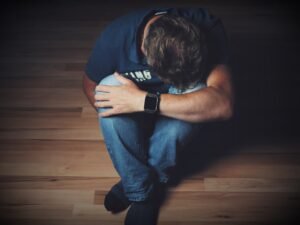How to Identify the Signs of Depression

Depression is a mental health condition that affects people of all ages, genders, and backgrounds. It is common but can be difficult to detect, especially since people often keep their mental health issues to themselves. The signs of depression can vary from person to person, but it is important to know what to look out for so you can help someone in need.
The first sign of depression is a persistent feeling of sadness or low mood that lasts for two weeks or longer. This can be accompanied by a lack of interest in usual activities, feelings of worthlessness or guilt, and a loss of energy or motivation. If someone seems to be constantly down or gloomy, it may be a sign that they are dealing with depression.
Another sign of depression is changes in sleep patterns. A person with depression may have trouble falling asleep or staying asleep, or they may sleep too much. They may also wake up feeling tired even after getting plenty of rest. Changes in appetite and weight can also be related to depression. Some people may lose their appetite and lose weight, while others may eat more and gain weight as a result of their depression.
Depression can also cause physical symptoms. Someone with depression may experience unexplained aches and pains, headaches, or digestive issues. They may also have difficulty concentrating or making decisions, and they may become forgetful or disorganized. These symptoms can be frustrating and can make it difficult for someone to function in their daily life.
One of the most alarming signs of depression is suicidal thoughts or behaviors. If someone talks about suicide or self-harm, it is important to take the situation seriously and seek help immediately. Suicidal thoughts and behaviors are a serious symptom of depression and can be life-threatening.
If you notice any of these signs in someone you know, it is important to talk to them about your concerns. They may not realize that they are dealing with depression, or they may be reluctant to seek help. Start by asking how they are feeling and letting them know that you are there to listen and support them. Encourage them to seek professional help, such as seeing a therapist or counselor.
If someone is experiencing suicidal thoughts or behaviors, it is important to act quickly. Call a crisis hotline or seek emergency medical attention. Do not leave the person alone and listen without judgment. Offer hope and let them know that there is always help available.
Preventing depression is also important. Taking care of yourself by exercising regularly, eating a balanced diet, and getting enough sleep can help prevent depression. Spending time with friends and family and engaging in activities that you enjoy can also boost your mood and help prevent depression.
If you are struggling with depression yourself, it is important to seek help. Talk to a trusted friend or family member, or seek professional help from a therapist or counselor. There are also support groups and hotlines available for people who are dealing with depression.
Depression is a common but often misunderstood mental health condition. Knowing the signs of depression and what to do if you notice them can make a big difference in someone’s life. Encourage open communication and support those who are dealing with depression. Take care of yourself and seek help if you are struggling with depression. Remember, there is always hope and help available.

Comments